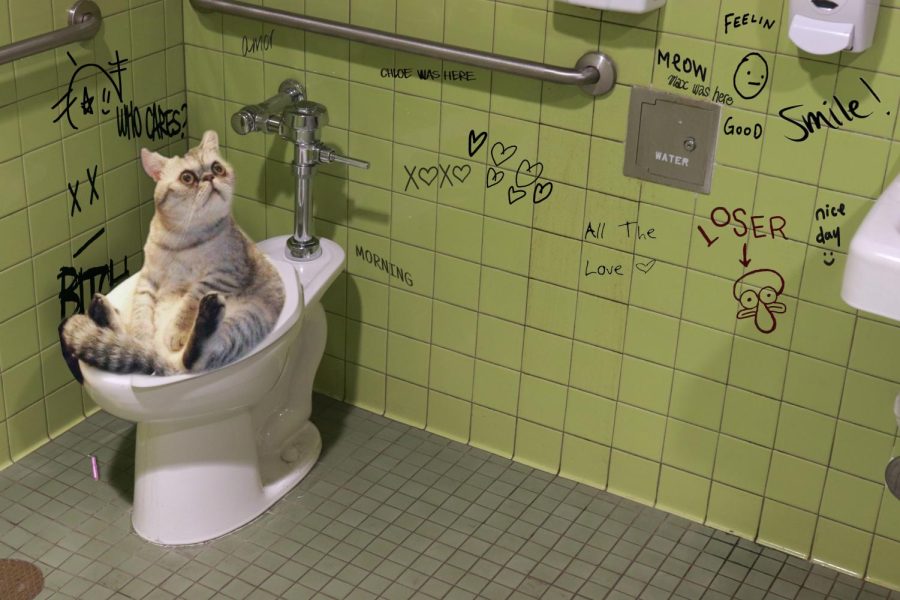Were you on the lookout for facts and techniques concerning Can You Flush Cat Poo or Litter Down the Toilet??

Introduction
As pet cat owners, it's vital to be mindful of just how we get rid of our feline pals' waste. While it might appear convenient to flush cat poop down the toilet, this practice can have damaging effects for both the environment and human health and wellness.
Ecological Impact
Flushing pet cat poop presents hazardous pathogens and parasites into the water, posturing a considerable threat to aquatic ecological communities. These contaminants can negatively impact aquatic life and compromise water high quality.
Health Risks
In addition to environmental worries, flushing pet cat waste can likewise position wellness risks to people. Cat feces might consist of Toxoplasma gondii, a parasite that can create toxoplasmosis-- a possibly extreme illness, especially for expectant women and individuals with weakened body immune systems.
Alternatives to Flushing
Thankfully, there are more secure and more responsible methods to dispose of cat poop. Take into consideration the complying with alternatives:
1. Scoop and Dispose in Trash
One of the most usual method of disposing of feline poop is to scoop it into a naturally degradable bag and throw it in the garbage. Be sure to use a devoted litter scoop and deal with the waste promptly.
2. Usage Biodegradable Litter
Choose eco-friendly cat trash made from materials such as corn or wheat. These litters are eco-friendly and can be securely disposed of in the trash.
3. Hide in the Yard
If you have a lawn, take into consideration burying cat waste in a designated location far from vegetable gardens and water sources. Be sure to dig deep sufficient to stop contamination of groundwater.
4. Set Up a Pet Waste Disposal System
Purchase a pet dog garbage disposal system particularly created for pet cat waste. These systems use enzymes to break down the waste, lowering smell and ecological effect.
Conclusion
Responsible pet possession extends past providing food and sanctuary-- it additionally includes correct waste management. By refraining from flushing cat poop down the toilet and choosing alternate disposal techniques, we can reduce our environmental footprint and protect human health.
Why Can’t I Flush Cat Poop?
It Spreads a Parasite
Cats are frequently infected with a parasite called toxoplasma gondii. The parasite causes an infection called toxoplasmosis. It is usually harmless to cats. The parasite only uses cat poop as a host for its eggs. Otherwise, the cat’s immune system usually keeps the infection at low enough levels to maintain its own health. But it does not stop the develop of eggs. These eggs are tiny and surprisingly tough. They may survive for a year before they begin to grow. But that’s the problem.
Our wastewater system is not designed to deal with toxoplasmosis eggs. Instead, most eggs will flush from your toilet into sewers and wastewater management plants. After the sewage is treated for many other harmful things in it, it is typically released into local rivers, lakes, or oceans. Here, the toxoplasmosis eggs can find new hosts, including starfish, crabs, otters, and many other wildlife. For many, this is a significant risk to their health. Toxoplasmosis can also end up infecting water sources that are important for agriculture, which means our deer, pigs, and sheep can get infected too.
Is There Risk to Humans?
There can be a risk to human life from flushing cat poop down the toilet. If you do so, the parasites from your cat’s poop can end up in shellfish, game animals, or livestock. If this meat is then served raw or undercooked, the people who eat it can get sick.
In fact, according to the CDC, 40 million people in the United States are infected with toxoplasma gondii. They get it from exposure to infected seafood, or from some kind of cat poop contamination, like drinking from a stream that is contaminated or touching anything that has come into contact with cat poop. That includes just cleaning a cat litter box.
Most people who get infected with these parasites will not develop any symptoms. However, for pregnant women or for those with compromised immune systems, the parasite can cause severe health problems.
How to Handle Cat Poop
The best way to handle cat poop is actually to clean the box more often. The eggs that the parasite sheds will not become active until one to five days after the cat poops. That means that if you clean daily, you’re much less likely to come into direct contact with infectious eggs.
That said, always dispose of cat poop in the garbage and not down the toilet. Wash your hands before and after you clean the litter box, and bring the bag of poop right outside to your garbage bins.
https://trenchlesssolutionsusa.com/why-cant-i-flush-cat-poop/

We were shown that editorial about How to Dispose of Cat Poop and Litter Without Plastic Bags through a good friend on our other site. Enjoyed reading our blog entry? Please share it. Help somebody else check it out. I take joy in reading our article about How to Dispose of Cat Poop and Litter Without Plastic Bags.
Contact Us